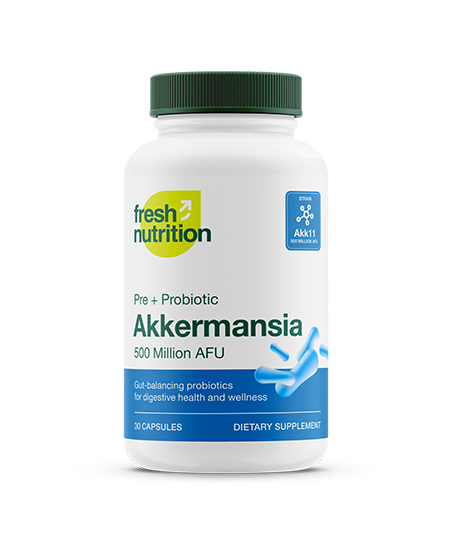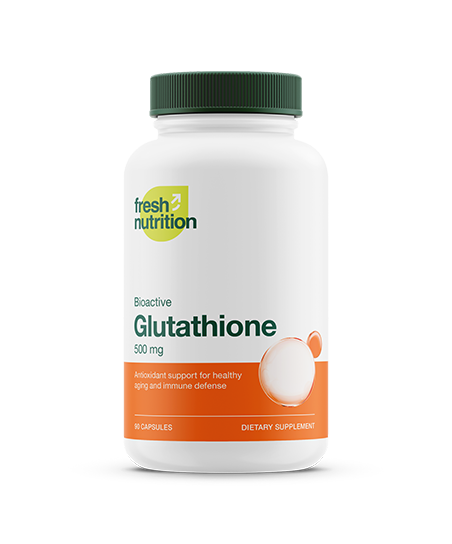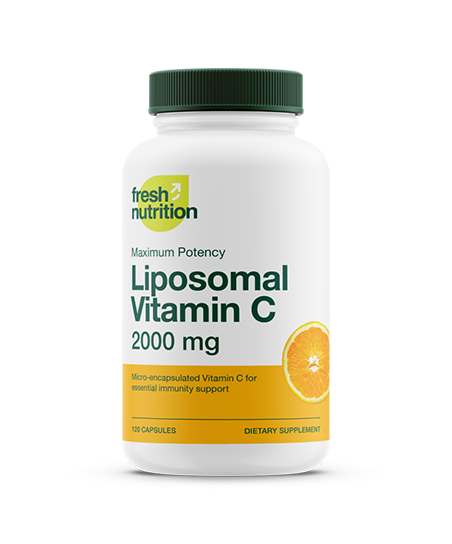The Benefits of Vitamin C
We often come across propaganda about the effectiveness of Vitamin C in our daily lives. Vitamin C is certainly an essential component of people's health maintenance. Today, we will delve into the efficacy of Vitamin C and the benefits of Liposomal Vitamin C in detail.
What is Vitamin C?
Vitamin C, also known as ascorbic acid, is a water-soluble vitamin. Water solubility is a significant property because it affects how the body absorbs and stores nutrients. It's transported to our body tissues and isn't stored in the body like fat-soluble vitamins. This means that vitamin C is typically excreted from the body through urine, so there is usually no extra vitamin C in the human body.
In addition to being a cofactor for the synthesis of many molecules in the human body, Vitamin C is also an antioxidant that prevents oxidative cell damage and disease in cells. Since the body cannot produce Vitamin C on its own, it is necessary to get it through one's diet.
Different age groups, genders, and living conditions have different vitamin C intakes. Adults need about 95-110 mg per day to maintain health and prevent scurvy, which is caused by a vitamin C deficiency. Smokers need to take in a larger amount of vitamin C each day, as cigarettes can reduce the body's absorption of vitamin C.
The phenomenon of vitamin C deficiency was first discovered in a sailor in 1700: he suffered from tooth loss. After investigation, the sailors’ diet contained enough protein and calories (such as cheese, meat, and fish, etc.), but they generally lacked the intake of vegetables and fruits. The conditions for preserving fresh food on board in that era were very limited. According to statistics, from 1500 to 1800, about two million sailors died of scurvy.
If the daily intake of vitamin C is less than 10 mg per month, it can result in scurvy. Other symptoms of vitamin C deficiency may include fatigue, inflamed gums, slow wound healing, depressed mood, tooth loss and, in extreme cases, death.
The effect of vitamin C
Vitamin C has three major functions in the human body: acting as a cofactor, enhancing immunity, and providing anti-oxidative properties.
As a cofactor, vitamin C is a substance that is essential for the activity of the enzyme. Enzymes, in turn, are proteins that accelerate chemical reactions and are necessary for nearly all metabolic processes that sustain life. Vitamin C is therefore required for the process of forming collagen, the primary protein structure of connective tissue in our body, which plays an important role in wound healing as well as our immune response. In addition to collagen, cofactors promote the formation of the following nutrients: L-carnitine and norepinephrine. L-Carnitine is an amino acid (the building block of proteins) that plays an integral role in metabolism and energy production, as well as in maintaining heart and brain function, and helps to rid cells of toxic substances. Norepinephrine is a neurotransmitter, the hormone responsible for the fight or flight response, the hormone that mobilizes the body and brain to act in times of stress or danger.
Vitamin C contributes to immunity in a multitude of ways: it aids in epithelial barrier function (collagen) against pathogens and boosts oxidant-scavenging activity in the skin, potentially shielding against environmental oxidative stress. At the time of cell death, vitamin C plays a role in clearing out used up neutrophils from sites of macrophage infection, thus reducing necrosis and potential tissue damage, and thus assisting in the growth and repair of tissues across the body. Vitamin C accumulates in phagocytic cells such as neutrophils and enhances chemotaxis, phagocytosis, production of reactive oxygen species and ultimately eradicates microorganisms.
Additionally, vitamin C acts as an antioxidant against free radicals; oxidation is a chemical reaction that releases free radicals into the body, and although a certain amount of free radicals is normal, excess can lead to cellular damage and disease. The presence of free radicals can act as a catalyst to create more free radicals in a chain reaction. Oxidation in the body can occur through natural bodily processes, but is more commonly caused by environmental pollution, smoking, unhealthy diet, alcohol consumption, and disease. Antioxidants can act to stop these free radicals, thereby preventing the progression of the oxidative chain reaction.
In general, these are the health benefits of Vitamin C: It contributes to normal collagen formation for proper functioning of blood vessels, bones, cartilage, gums, skin, and teeth. It also promotes normal energy metabolism and contributes to the normal functioning of the nervous system. Additionally, it helps with mental health, maintains normal immune system function (even during/after strenuous exercise), protects cells from oxidation, relieves fatigue, regenerates vitamin E, and aids in iron absorption.
What is liposome? What is the structure of liposome?
Liposomes are nano-microspheres with a double-layer membrane composed of linked phospholipids. This double membrane is also present in almost all biological membranes, such as the cell membranes of our bodies.
Liposomes have an amphiphilic structure (water-soluble and fat-soluble), which can encapsulate and protect active ingredients such as vitamins, minerals, and plant extracts, and safely transport them into the bloodstream, and finally reach the most effective site of action.
What are the advantages of liposomal dietary supplements compared to regular dietary supplements?
Since the structure of liposomes is similar to that of human cells, active ingredients can be encapsulated in a double-layer membrane composed of phospholipids to protect them from passing through the powerful digestive system of the human body and releasing them into the bloodstream to exert their full effect. Once the lipids reach the small intestine, enterocytes and liposomes have the same cell membrane structure, so they can merge, allowing the active ingredient to be delivered directly to the intestinal epithelial cells.
Research in medicine and nutritional science has demonstrated that the bioavailability of vitamins, minerals, and plant substances can be increased up to 46 times through the utilization of Antti's new liposome technology. Bioavailability refers to the amount of a nutrient that is effectively absorbed into the bloodstream. Liposomes possess the ability to deliver substances within their hydrophilic interior and their fat-based bilayer membrane, regardless of charge, size, or structure.
In summary, liposomes have three major advantages:
Easier absorption through the human digestive system (liver, gastric acid, small intestine, etc.), as the main component of liposomes consists of phospholipids which have a structure similar to that of the human cell membrane, thus protecting the active ingredient from degradation and allowing it to be absorbed more easily and reach the most effective part of the body to take action.
Protect the active ingredients without irritating the stomach: the main component of liposomes, phospholipids, can protect and cover the active ingredients, avoiding the powerful filtering system of the human body so that they can be safely transported into the bloodstream, and can also reduce the side effects of certain high-dose vitamins and minerals.
High bioavailability: For instance, Fresh Nutrition Liposomal Vitamin C has a bioavailability of 90%, indicating that 90% of the active ingredients are absorbed into the bloodstream, while the remaining 10% are eliminated through excretion or metabolism.




